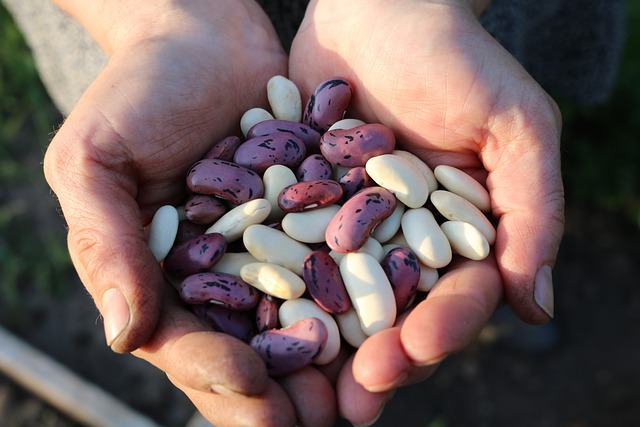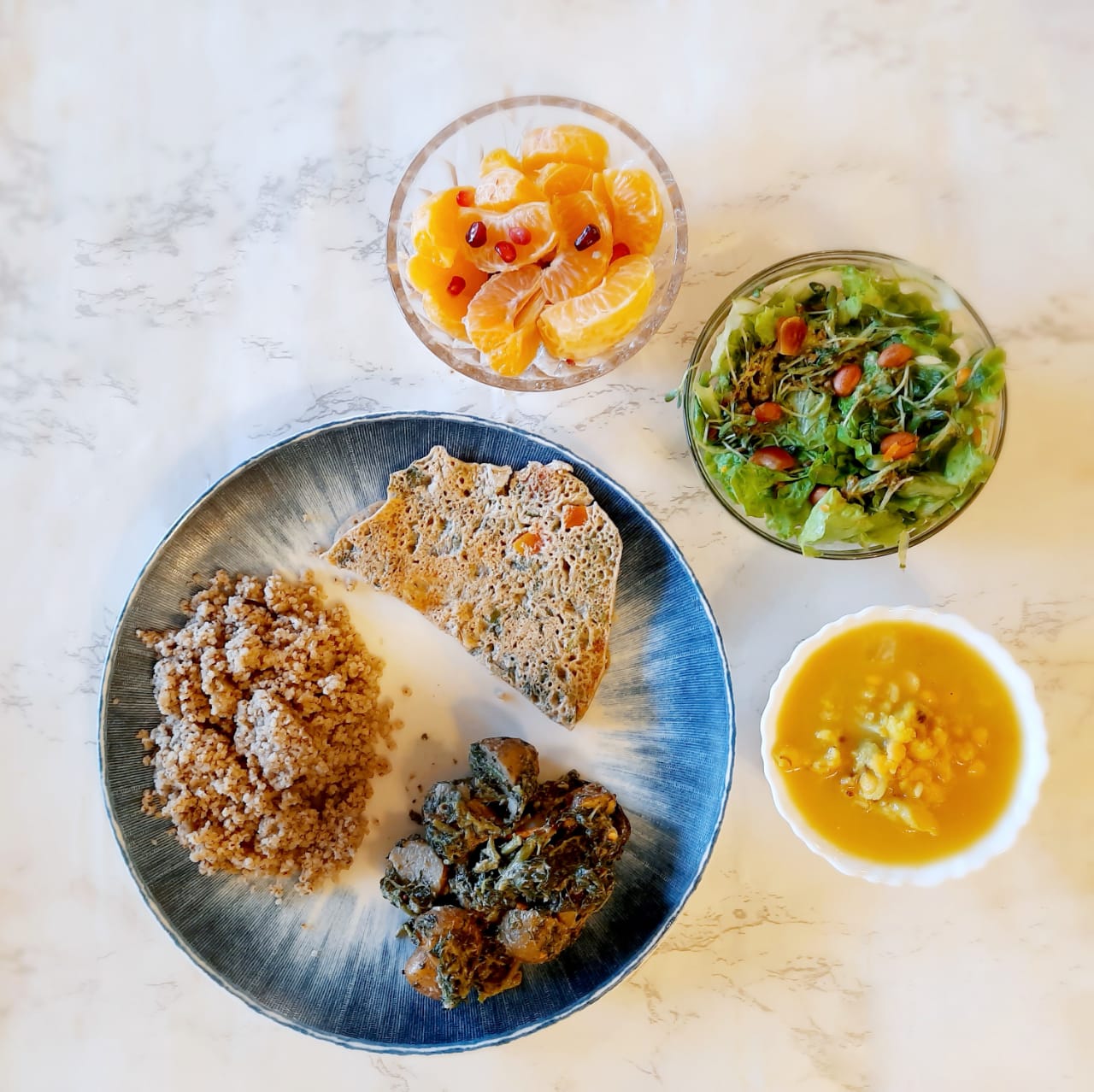Introduction
A plant-based diet rich in legumes has been shown to help with weight loss for those who are overweight to begin with.
A vegan diet rich in whole foods like fruits, legumes and whole grains has shown to improve diet quality and insulin sensitivity according to a new study by PCRM published in the Journal of the Academy of Nutrition and Dietetics. They study found that the weight loss was because of a higher consumption of legumes and lower consumption of animal food such as meat and fish.
The Study: A Snapshot
The objective of the study was to see how different food groups, nutrient intakes and quality of diet change over a period of 16 weeks on a low fat healthy vegan diet. They also studied the effect of these changes which changes in body weight body composition and metabolic health.
In addition to the participants being on a low fat vegan diet, they also had regular classes with dietary instruction, group discussions, and health education on plant-based nutrition.
The study had a control group who continued with their regular dietary habits.
- The study found that increasing legume intake was the best single food group associated with weight loss.
- The diet quality of the participants who made dietary changes improved by an AHEI (Alternative Healthy Eating Index) of 6.0 points on average.
- Insulin improvement is associated with improvements in weight and metabolic outcomes. The group that made no dietary changes did not see any change in there insulin sensitivity or quality of diet.
- Participants on the low fat vegan diet (who ate more plant-based foods and less animal products) lost an average of almost 6 kgs compared to no change in weight in the group that made no dietary changes.
The Study: Dietary Factors & How they Influenced the Outcome
The study looked at the following 6 dietary factors and how they affected health outcomes
- Fruit: study found that increasing whole fruit contributed to weight loss.
Fruit gets a bad rep for having too much sugar. Some fruits are also wrongly associated with unnecessary weight gain.
Studies have shown that whole fruits and smoothies (with the fibre intact) are actually helpful for people with diabetes and contribute to weight loss if you are overweight to begin with. - Legumes: Eating more legumes were shown to contribute to weight-loss in the study. Tofu and tempeh & some other meat alternatives were also found to help with weight-loss.
Lentils, pulses, and legumes like black bean have long been staples in the Indian kitchen.
Increasing your consumption of these beans go a long way in helping you move towards your ideal weight and improve your overall health, even helping to prevent diseases like colorectal cancer. - Whole Grains: Eating more whole grains have been shown to help with weight-loss according to the study.
Whole grains refer to unpolished grains such as brown rice, red rice, black rice, whole wheat, unpolished millets among others.
Most mainstream diets demonize carbs. Many diets are even centered around low or zero carbs. This myth is doing more harm than good. Carbohydrates are the main source of fuel for the brain. Instead of eliminating carbs, choose healthy sources of carbs such as starchy vegetables and whole grains - unpolished rice, millets, whole wheat, for those eating vegetarian diets, non-vegetarian diets or vegan diets. - Eggs and Dairy Products: decreased consumption of eggs and high-fat dairy was associated with a decrease in body weight and fat mass.
Animal-based foods like eggs and dairy products are not only high in calories but also in cholesterol and saturated fat. You can improve your overall health by reducing the consumption of these products. - Meat, fish, and poultry: Lowering the total quantity of meat and fish were also associated with decreases in weight.
Meat and poultry consumption is associated with protein, but animal protein intake may be a risk factor for kidney failure and cancer.
With an increase in plant protein sources like lentils pulses and legumes, you can the benefit of both protein in your diet as well as protection against chronic lifestyle disease and get all your essential amino acids too. - Added fats: The study also showed that lower the intake of added animal fats, better results in terms of weight-loss. Similarly lower consumption of added oils also correlated with weight loss.
Moving from oil-based cooking to water based cooking steaming and baking can help you lower consumption of oil while still making the same dishes everyday. You can get all your essential fatty acids including omega-3 fatty acids from nuts and seeds instead of sunflower oil or olive oil.
Start today, learn more about a whole-foods, plant-based diet and how you can implement it in your daily life to benefit from it.
Benefits of a Whole-Foods, Plant-Based Diet
A whole-foods, plant-diet, is one where a majority of calories come from unprocessed plant foods.
Diets rich in fruits, berries, vegetables, cruciferous vegetables, green leafy vegetables, lentils, legumes, pulses, whole grains, herbs and spices, nuts and seeds, and even mushrooms and condiments like miso paste and nutritional yeast is characteristic of a whole -foods plant-based diet.
A well balanced whole-foods, plant-based diet is one rich in essential nutrients from whole plant sources. You get all key nutrients on a whole-foods, plant-based diet except for Vitamin D and Vitamin B12 for which we recommend that you take supplements.
Whole-foods, plant-based diet is one where you avoid meat products, dairy food consumption, foods from animal sources and processed foods.
This includes meat & meat products, fish, eggs, dairy products, oil, sugar, jaggery, refined grains, and alcohol intake.
Diet rich in whole plant foods have several beneficial effects. They have been shown to help lower your risk of several chronic diseases including cardiovascular disease, risk of cancers, diabetes, hypertension, obesity, risk of breast cancer among others.
It has shown to improve overall human health, specifically heart health, cholesterol levels, immune function, metabolic health, among others.
Obesity in India - Dietary Causes
In urban India, we are seeing a huge shift in dietary patterns. An increase in ordering in and takeaways, has led to a steep increase in the consumption of processed and animal foods in these parts of the country. Eating energy-dense foods combined with a low levels of physical activity has a negative health impact.
- With one and four Indians having a weight problem, the prevalence of obesity has increased in 2019-21 compared to 2015-16 as per the National Family Health Survey (NFHS-5)
- Hotels, Café, and Joints focus on making exotic dishes - one tastier than the last - with increased levels of sodium sugar and fat, with no regard for nutrition or health.
- India's also seeing an increase in the consumption of animal foods with a vast majority of Indians now shown to have increased meat intake. This includes processed meats as well.
- Many Indians today are suffering from eating too many calories while at the same time having poor quality diet and inviting a host of chronic lifestyle diseases.
- Urban Indian diets are moving closer to the Standard American Diet. And with it come to associated problems of metabolic health issues like diabetes, hypertension, strokes, coronary artery disease, obesity, etc.
Benefits of Legumes, Lentils & Pulses
Pulses lentils and legumes are staples in the Indian kitchen. However, with the increase in the consumption of animal protein, in India, we may miss out on the consumption of this healthy food group, adding to our cardiovascular risk factors.
Pulses, lentils, and legumes come with numerous health benefits
- They are rich in dietary fiber
- They help reduce cholesterol
- They help lower blood sugar levels
- They help improve gut health
- They are a good source of protein
- Lentils, legumes and pulses have shown to lower stroke risk
- They are rich in several micronutrients, vitamins and minerals
Top 5 Legumes, Lentils & Pulses for the Indian Kitchen
- Chickpeas: one cup of chickpeas contain about 14.5 grams of protein and 12.5 grams of fiber. They are also a good source of folate, copper, manganese, & iron. Study shows that eating chickpea hummus have been linked to making you feel fuller and reduce cravings for deserts later in the day.
- Lentils: one cup of cook lentils contain 17.9 grams of protein and 15.6 grams of dietary fibre. They are also rich in vitamin b1, folate, copper, iron, and zinc. Lentils are among the most iron rich legumes and in India lentils (dals) a widely available and used in a variety of dishes.
- Peas: one cup of cooked green peas contain 8.5 grams of protein and 8.8 grams of fibre. They are a good source of Vitamin B1, folate, manganese and Vitamin K.
Studies have shown that muscle gains associated with consuming plant-based sources of protein were comparable to those from whey protein. - Kidney beans: one cup of kidney beans has 15.3 grams of protein and 13.1 grams of fibre. They are also a rich source of Vitamin B1, folate, copper, manganese, and iron.
Kidney beans or rajma is easily available in India. Studies have shown that adults eating three fourth cup of red kidney beans have significantly lower blood pressure 2 hours after eating, compared to eating rice. - Soya beans: one cup of soya beans has 31.3 grams of protein and 10.3 grams of fibre. It is also a good source of riboflavin, folate, vitamin K, iron, manganese, and phosphorus.
A meta analysis of 21 other studies show that consuming plant protein foods like soybeans regularly was associated with a 15% lowered risk of stomach and gastro intestinal cancer
Next Steps - Get Started Today
If you or someone you know is looking to prevent, treat or better manage a lifestyle disease we may be able to help
1. Book an online consultation with Dr. Achyuthan Eswar to understand more about specific lifestyle changes and how you can adopt them
2. Subscribe to our 100% whole food plant based healthy meal plan, designed to help you get and stay healthy from the comfort of your home - Bengaluru only
3. Stock up on delicious Whole Food Plant Based sweets and snacks that are sugar/jaggery-free, oil-free, maida-free and plant-based - Available Pan-India
4. Learn more about a whole food plant based diet on NutritionScience.in and get started on your journey to a healthier tomorrow
5. Sign up for our Plant Based Diet Masterclass on NutritionScience.in and take a deep dive into a whole food plant based diet and how it affects your health




